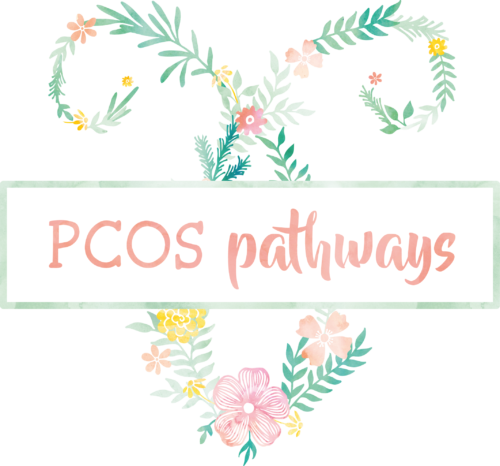I’ve always shied away from eating low fat anything. Essentially because of taste but also because I’ve always felt that natural full fat products were ok to consume. Well after reading about a giant study done on the issue of low fat dairy and fertility, I’m really glad I went with my gut all these years.
When I was in India in 2015, I sadly lost my husbands’ and my first baby when I was 13 weeks pregnant. After a few false starts, we found a Doctor that we liked to perform the surgery to remove our baby from my womb. This Doctor was so so lovely and before we left India she gave me a book from her own home collection. So sweet!
The book is called ‘The Fertility Diet’ and is written by Jorge E. Chavarro, Walter C Willett and Patrick J Skerrett. It outlines findings from a giant study called the Nurses’ Health Study. The full study includes 116000 nurses of a fertile age. The nurses fill in an increasingly large survey every two years about everything from what they eat to the relationships they have. Of these
women, the scientists who wrote the book have looked at 18555 of the participants who had stated at some point in their questionnaires that they were trying to get pregnant.
The study is really interesting and I highly recommend the book. To stay on point though, I’ll just go into the amazing discoveries they found around low fat dairy products.
THE REASON LOW FAT DAIRY CAN BE UNHEALTHY FOR WOMEN
The study showed that one or two servings of full fat dairy per day seemed to protect women from ovulatory infertility, whilst skim and low fat dairy did the opposite. Ummm…whoa! This is really important info for women with PCOS whose infertility is caused by ovulatory issues. The study showed that the more low fat dairy products in a participants diet, the more likely she was to have difficulties conceiving. And the more full fat dairy products consumed by a participant, the less likely she was of having problems conceiving. I found this so interesting!
The reason low fat dairy has this effect on women is even more interesting though. When dairy farmers process milk to make it anywhere from full to no fat, they use a machine called a separator. This machine spins all the milk around, pulling the fat to the centre. The farmers then remove as much fat as necessary for the product they are making. The problem is, certain hormones love fat – they’re called lipophilic and when the fat is removed, these lipophilic hormones are removed too. Sounds good to remove hormones right? Well in this case it actually isn’t.
Milk contains a lot of hormones, especially these days when they milk cows even if they’re pregnant. It contains female hormones such as prolactin, gonadotropin releasing hormone, estrogens and progesterone. It also contains male hormones (androgens) or their precursors including testosterone and androstenedione.
Estrogen, progesterone and some androgens are those fat loving hormones, which means when the fat is separated from the milk, these hormones – mainly female – go with it. This leaves the milk filled with an excessive amount of male hormones and a lack of female hormones to balance it out. Ummmm does this sound like anyone else’s PCOS bod? This cow literally mirrors my facial expression when I found this out.

When so many of us are suffering from excessive androgens resulting in unwanted hair growth, acne and more, we need to be keeping away from low fat dairy products that are filled with an unbalanced, excessive amount of androgens, insulin-like growth factor-1 and prolactin.
As the book says, ‘An excess of male hormones unchecked by female hormones can prevent follicles from fully maturing. Extra insulin-like growth factor-1 can further widen the gap between depressing the body’s production of sex hormone binding globulin. Because sex hormone binding globulin holds more testosterone than estrogen, reductions in it increase the ratio of testosterone to estrogen floating freely in the blood stream. Too much prolactin, a growth hormone that stimulates breast tissue to make milk, can directly suppress ovulation, which is one reason why women usually don’t get pregnant when they are breastfeeding.’
Wow, wow, wow. When I read this information I was really blown away and just thought…man, every women with PCOS needs to know this. So hopefully there are a few of you reading this.
There’s a lot more info about this if you read the study or read the book so check it out!
And tell me what you think about it. Have you been consuming low fat dairy? Has this made you think twice about it? To help sway you, this essentially means ice cream is good for us. Right? Right?


I’ve read that avoiding dairy altogether is good for PCOS, but this seems to be saying the opposite. What do you think?
Hey! Lot’s of people recommend avoiding dairy and I think that’s fine too but food effects us all differently and some people aren’t willing to give it up. Dairy is usually recommended to be avoided because it can be inflammatory and inflammation is a trigger for PCOS. I don’t go into it in this article but the part of cows dairy that is inflammatory is a protein called A1 casein. You can buy A2 milk, which doesn’t have A1. Also, milk from Jersey cows is largely free from A1. And goat and sheep dairy is free from A1. Also butter is fine because it is only fat and doesn’t contain protein and ricotta is ok because it is mostly made just from whey. So I think for people who want to consume dairy, having full fat dairy that is from from A1 is the best way forward.
Perhaps I should rewrite my article to reflect all that – thanks for the question!
Mel